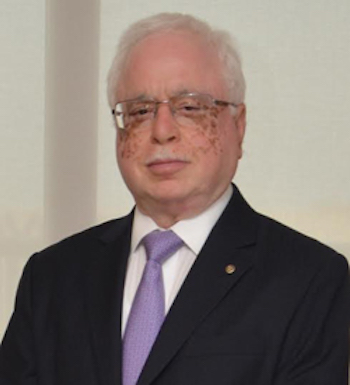
Jagdeep Dhankhar, 71, was declared elected as the Vice President on Saturday, August 6, after he bagged 528 votes against his rival candidate Margaret Alva’s 182. Dhankhar was born on May 18 May 1951 in Kithana village in Jhunjhunu District, Rajasthan. Dhankhar did his primary schooling in his village Kithana. He later joined the Sainik School, Chittorgarh, on a full scholarship. After graduating from Sainik School, he joined the Maharaja’s College, Jaipur in the B.Sc (Honours) Physics course, according to his biography on West Bengal Raj Bhavan.
It adds that Dhankhar then took admission to the LLB course at the University of Rajasthan. He graduated in the year 1978-79 and was enrolled as an advocate in the bar in the same year.
Dhankhar was designated as Senior Advocate by the High Court of Judicature for Rajasthan on March 27, 1990, and he was the senior-most designated Senior Advocate of Rajasthan till his appointment as Governor on 2019,according to the Raj Bhawan. Dhankhar forayed into politics in 1989 and was elected to the Lok Sabha from Jhunjhunu in Rajasthan that same year and became a Union minister in 1990. Dhankhar was also a member of the Rajasthan Vidhan Sabha during 1993-98 representing Kishangarh constituency.
The ‘first-generation professional’
BJP chief JP Nadda hailed Jagdeep Dhankhar as a “first generation professional”. As a lawyer, Dhankhar practised primarily in the Supreme Court and his focus area of litigation has been steel, coal, mine and international commercial arbitration, amongst others, according to Raj Bhawan. He has appeared in various High Courts in the country. Dhankhar was also elected President of the Rajasthan High Court Bar Association,Jaipur at the youngest age of 36 in the 1987. Dhankhar was elected a Member of the Rajasthan Bar Council in 1988.
Dhankhar’s tussle with Mamata Banerjee
Ever since his appointment as West Bengal Governor, Jagdeep Dhankhar and Mamata Banerjee have gone after each other. The Trinamool Congress (TMC) leadership has often accused Dhankhar of acting as an ‘agent of the BJP’,while the Bengal BJP looked upon him as an ‘upholder of constitutional norms’. On his part, Dhankhar has claimed he has gone by the rule book and the Constitution in pointing out issues to Banerjee’s government and the state
legislature.
Acrimony between Dhankhar and TMC and Banerjee often led to messy situations with both levelling accusations at each other. The issues which had Dhankhar and Banerjee sniping at each other ranged from post-poll violence in the state to delays in assent to bills passed in the House, besides interference in the functioning of the civilian bureaucracy and state-run universities.
Interestingly, Banerjee had met Dhankhar on Wednesday along with BJP’s pointsman for Northeast, Assam Chief Minister Himanta Biswa Sarma, at Darjeeling. No details of the meeting were made public by either side and it was termed as a courtesy call.
Banerjee has written several complaints regarding Dhankhar, according to India Today. It reports, “The primary reasons of complaint stated in the letters were the difficulties of governance faced by the state government created by the Governor in the procedures of file movements, clearance of files, calling the chief secretary and other state level senior officials on nominal issues and thereby challenging the authority of the CM on various matters.”
Jagdeep Dhankhar’s political journey
BJP chief JP Nadda called Jagdeep Dhankhar ‘kisan putra’ [farmer’s son]. Dhankhar also belongs to the Jat community, which is a politically influential caste in several areas in North Indian states including Rajasthan. Notably, the BJP has faced ire both from the farmers and Jats -many of whom are land-holding farmers in Uttar Pradesh, Rajasthan, and Haryana– in recent years, which was visible during the year-long farmers’ protests. Analysts told PTI that NDA’s Dhankhar has a lot more going than just being someone always at odds with Banerjee. Dhankhar has in the past claimed to be a ‘reluctant politician’. Along with other leaders, Dhankhar was involved with the grant of OBC status to Other Backward Classes,including the Jat community in Rajasthan.Like most Jat politicians from his time, Dhankhar was originally associated with Devi Lal and he followed his mentor when the latter walked out of the VP Singh government and became a union minister in 1990. Dhankhar joined the Congress when PV Narsimha Rao became the prime minister and Devi Lal was no more than effective. But with the rise of Ashok Gehlot in Rajasthan politics, he shifted to the BJP and is said to have become close to Vasundhara Raje soon after.
VICE PRESIDENTS OF INDIA
The Vice President of India is the deputy to the President of India and this office ranks second in order of precedence and first in line of succession to the presidency.The Vice President is also a member of Parliament of India as the Chairman of the Rajya Sabha. When a bill is introduced in the Rajya Sabha it is the Vice President who decides whether it is a money bill or not. The Vice President is elected indirectly by members of an electoral college comprising members of both Houses of Parliament and not the members of the state legislative assemblies. The election is done by the system of proportional representation using single transferable votes and the voting is conducted by the Election Commission of India using a secret ballot. Sarvepalli Radhakrishna was the first Vice President of India and served from May 13 1952 to 12 May 1962 before he took over as President. India has had 13 Vice Presidents and currently the post is held by Venkaiah Naidu.





Be the first to comment